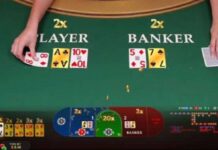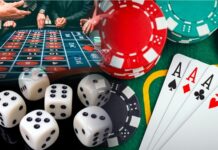In the dynamic realm of prediction gaming, social comparison serves as a powerful psychological mechanism that influences players’ behaviors, motivations, and perceptions of success. Social comparison theory posits that individuals evaluate themselves by comparing their abilities, attributes, and achievements to those of others, leading to various cognitive and emotional outcomes. In this article, we delve into the multifaceted role of social comparison in prediction gaming, exploring how it shapes players’ decision-making processes, competitive dynamics, and overall gaming experiences at 91-clubb.in.
Understanding Social Comparison in Prediction Gaming:
Comparative Evaluation:
Social comparison in prediction gaming involves the comparative evaluation of one’s performance, outcomes, or abilities in relation to those of other players or reference points within the gaming community. Whether competing against friends in multiplayer matches, comparing leaderboard rankings, or benchmarking achievements against global statistics, players continually assess their standing and progress within the gaming ecosystem.
Upward and Downward Comparison:
Social comparison can manifest in upward and downward forms, depending on the direction of comparison relative to one’s own abilities or achievements. Upward comparison involves comparing oneself to others who are perceived as superior or more successful, often leading to feelings of inadequacy, envy, or motivation to improve. In contrast, downward comparison involves comparing oneself to others who are perceived as inferior or less successful, leading to feelings of superiority, complacency, or gratitude for one’s own achievements.
Social Influence and Norms:
Social comparison in prediction gaming is influenced by social norms, expectations, and peer dynamics within gaming communities. Players may conform to prevailing norms of behavior, emulate successful strategies of top performers, or seek validation and recognition from their peers through comparative evaluation. Social comparison can motivate players to strive for excellence, pursue competitive goals, or adjust their gameplay strategies based on perceived social benchmarks and standards.
Impact of Social Comparison on Prediction Gaming:
Competitive Motivation:
Social comparison serves as a powerful motivator for competitive engagement and achievement in prediction gaming. By comparing their performance to that of others, players may experience heightened motivation to excel, outperform their peers, and climb the ranks within gaming leaderboards. Whether vying for top positions in competitive tournaments or seeking recognition from fellow gamers, social comparison fuels players’ drive for success and achievement in prediction gaming.
Psychological Well-being:
Social comparison can influence players’ psychological well-being and emotional experiences within prediction gaming environments. Upward comparison may lead to feelings of inadequacy, frustration, or envy when players perceive themselves as falling short of others’ achievements. Conversely, downward comparison may foster feelings of satisfaction, pride, or gratitude when players compare themselves favorably to others. Managing the impact of social comparison on psychological well-being is essential for promoting positive gaming experiences and mitigating negative outcomes such as stress, anxiety, or self-doubt.
Community Dynamics:
Social comparison contributes to the formation of community dynamics, social bonds, and group cohesion within prediction gaming communities. Whether sharing strategies, celebrating victories, or commiserating over defeats, players engage in comparative evaluation as a means of fostering social connections and camaraderie with their peers. Social comparison reinforces a sense of belonging, identity, and shared purpose within gaming communities, enriching players’ experiences and strengthening community bonds.
Conclusion:
Social comparison is a pervasive phenomenon that influences players’ behaviors, motivations, and experiences within prediction gaming environments. Whether fueling competitive motivation, shaping psychological well-being, or fostering community dynamics, social comparison plays a central role in shaping the dynamics of prediction gaming communities. By understanding the multifaceted role of social comparison in prediction gaming, players and developers can cultivate positive gaming experiences, promote inclusive community dynamics, and enhance overall player satisfaction within prediction gaming ecosystems.
















